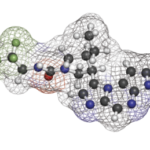(Reuters)—U.S. drugmaker AbbVie Inc said on Wednesday late-stage data showed its rheumatoid arthritis drug performed better than a placebo in reducing symptoms in moderate-to-severe patients who have not adequately responded to standard treatments.
Two doses of the drug, upadacitinib, induced a statistically significant reduction in symptoms compared to a placebo in the 12-week long study, AbbVie said.
Nearly half of the patients achieved low disease activity at both doses and around 30 percent achieved clinical remission, data showed.
Upadacitinib is a once-daily pill belonging to a class of drugs known as Jak inhibitors, which block inflammation-causing enzymes known as Janus kinases.
Jak inhibitors compete with injected biologics, including Amgen Inc’s top-selling Enbrel (etanercept), which in 2016 generated sales nearly $6 billion in sales. Other biologics include Pfizer Inc’s Xeljanz (tofacitinib citrate) and AbbVie’s Humira (adalimumab).
Last month, the U.S. Food and Drug Administration declined to approve Eli Lilly and Co and partner Incyte Corp’s rheumatoid arthritis drug, Olumiant (baricitinib).
AbbVie is also evaluating upadacitinib for several other conditions, including psoriatic arthritis, Crohn’s disease, ulcerative colitis and atopic dermatitis.



